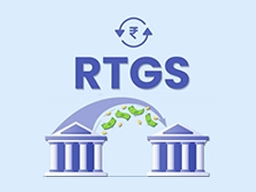Road Map - Saarc Payments Initiative - Reserve Bank of India


Approved Road Map of SAARC Payment Council (SPC)
At the 12th SPC Meeting held in Dhaka, Bangladesh on 18 th November, 2012 it was decided to modify/ develop the Road Map for SAARC Payments Council. In the said meeting, it was further discussed that the Road Map be prepared in a way that all member countries could benefit from the advancement in the payment & settlement systems of member countries enabling them to develop and improve their own systems so that the purpose of SPI Objectives could be served.
The Road Map has been approved by the SPC Forum in its 14 th Meeting held on 9 th December 2013 at Kovalam, India.
A Team of three members was formed to develop the Road Map of SPC. The main objectives of the Road Map are:
- To achieve the objectives of SAARC Payment Initiative;
- To look into the developments made by SAARC countries;
- Setting benchmark for those countries who are in the process of developing and bringing their systems at par with other countries in the region;
- It will serve the purpose where a country requires technical help from other country whose systems are already developed; and
- At what level we would like to see the payment and settlement systems of the SAARC Region in 3 to 5 years time.
The Road Map of SPC has been designed considering the following 8 major areas discussed in the 13 th SPC meeting and setting up goals/ actions within each one of them for the agreed time (3 or 5 years) to achieve targets. The points described under each area are generic in nature (in order to maintain international standards and practices) and are not confined; therefore, members are welcome to raise issue(s) in particular with respect to their countries for discussion.
- Real-Time Gross Settlement System or related settlement mechanism in countries where these systems are not present.

- E-Banking through New Payment Methods (products such as prepaid cards, mobile, store-value cards etc.) and other services available for making payments to facilitate consumers and business sector.
- To look into ways through which government payments such as pension, government scheme to poor can be transferred to beneficiaries through electronic channels.
- Role of government in accepting electronic payments from general public such as taxes.
- Interoperability among participants and operators of payment systems.

- Risks attached with the large as well as small-value payment systems.
- International Security Standards and recommendation of international bodies for mitigation of risks related with payment & settlement systems.
- Security of sensitive information/ data at each and every stage of the payment process.

- Equal opportunities by providing a level playing field to private sector entities and their access to the market.
- Pricing mechanism (according to country’s requirements) in order to make payment operators and their systems transparent and cost effective.

- Strengthening payment infrastructure through payment systems laws/ rules & regulations/ regulatory framework.
- Oversight measures/ mechanisms to ensure safe and reliable payment & settlement systems.
- Framework to tackle challenges emerging out of digital/ virtual currencies and other innovative mechanism.

- In the light of recommendations from international bodies, Policy Committees/ Boards/ Groups in order to timely monitor progress in payment and settlement system activities.

- Training programs and Seminars to educate payment system participants, operators and users.
- Programs on e-banking in order to increase public trust and confidence in the electronic payment systems.

- Establish interconnectivity between various payment mechanisms of SAARC countries (subject to the exchange control requirements of countries).
- Development of payment & settlement systems to facilitate trade and investments between member countries.

Road Map Status Report 2013
Page Last Updated on:
















